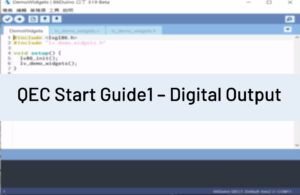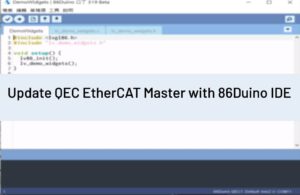[AIServo86]
Description
Play back user-defined robot action frames (Frame).
Syntax
servoframe.playPositions()
servoframe.playPositions(servo1)
servoframe.playPositions(servo1, servo2)
servoframe.playPositions(servo1, servo2, ... , servo64)
servoframe.playPositions(time)
servoframe.playPositions(time, servo1)
servoframe.playPositions(time, servo1, servo2)
servoframe.playPositions(time, servo1, servo2, ... , servo64)
Parameters
servoframe: Variable of AIServoFrame type.servo1 ~ servo64: The variables of AIServo type.time(optional): If no setting value is entered or the setting value is 0, it means the servo will rotate at full speed.
Returns
None.
Example
#include <AIServo86.h>
AIServoPort(ROBOTIS, AX12) bus;
AIServo myservo0;
AIServo myservo1;
AIServo myservo2;
AIServoFrame myframe; // declare a Frame object
void setup()
{
bus.begin(Serial1, 1000000);
myservo0. attach(bus, 9);
myservo1. attach(bus, 11);
myservo2. attach(bus, 5);
myframe.positions[0] = 1800; // set Frame content
myframe. positions[1] = 1300;
myframe. positions[2] = 2000;
// Rotate the servo to the position specified by Frame in 500ms (myservo0 rotates to position[0]
// position, myservo1 rotates to position[1], myservo2 rotates to position[2])
myframe.playPositions(500, myservo0, myservo1, myservo2);
}
void loop() {}See also
- positions[]
- setPostions()
- save()
- load()
Libraries Reference Home
The text of the 86Duino reference is a modification of the Arduino reference and is licensed under a Creative Commons Attribution-ShareAlike 3.0 License. Code samples in the reference are released into the public domain.



